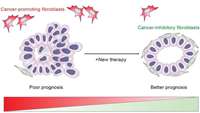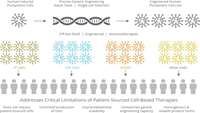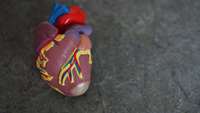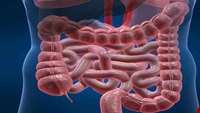Clinical Trial to Test CRISPR-modified T-cells in Treating Advanced Cancers
Immune cells that have been genetically engineered using CRISPR technology will be tested for a first time as a potential treatment of metastatic gastrointestinal cancer in a clinical trial.
New therapy to target the spread of bowel cancer
For the first time, SAHMRI and University of Adelaide researchers are investigating gene therapy as an option to help people with metastatic bowel cancer.
Scientists develop new gene therapy for eye disease
Scientists from Trinity College Dublin have developed a new gene therapy approach that offers promise for one day treating an eye disease that leads to a progressive loss of vision and affects thousands of people across the globe.
Investigational New Drug (IND) Update
In this first IND update from CRISPR Medicine News, we look at three pre-clinical-stage CRISPR-engineered cell therapies that are under development for the treatment of sickle cell disease (SCD), beta-thalassemia, or acute lymphoblastic leukaemia (ALL).
Researchers discover stem cells in the optic nerve that enable preservation of vision
Researchers at the University of Maryland School of Medicine (UMSOM) have for the first time identified stem cells in the region of the optic nerve, which transmits signals from the eye to the brain.
'Mini-lungs' reveal early stages of SARS-CoV-2 infection
'Mini-lungs' grown from tissue donated to Cambridge hospitals has provided a team of scientists from South Korea and the UK with important insights into how COVID-19 damages the lungs.
Cure for diabetes University of Alberta researchers believe they've found one
EDMONTON -- Scientists at the University of Alberta say they may have discovered a cure for diabetes.
Stanford team creates cellular atlas of the human lung
A team of researchers from multiple departments at Stanford University has created a cellular atlas of the human lung that highlights the dozens of cell types that comprise parts of the lungs
3-D bioprinted heart provides new tool for surgeons
Professor of Biomedical Engineering Adam Feinberg and his team have created the first full-size 3-D bioprinted human heart model using their Freeform Reversible Embedding of Suspended Hydrogels (FRESH) technique.
Gut immune cells may help send multiple sclerosis into remission
An international research team led by UCSF scientists has shown, for the first time, that gut immune cells travel to the brain during multiple sclerosis (MS) flare-ups in patients. These gut cells seem to be playing a protective role, helping drive MS symptoms back into remission.












